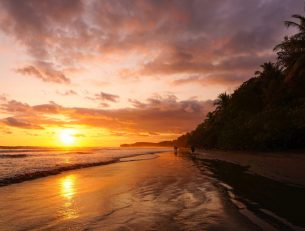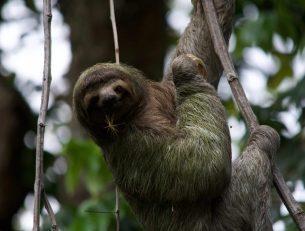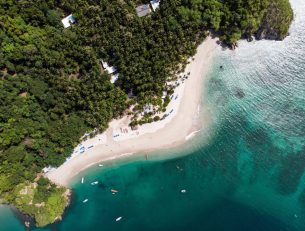Costa Rica is a famous destination for wildlife holidays and adventure breaks thanks to its pristine, diverse natural landscape. The cloud forest in particular, is one of the best known types of climate in the Costa Rica, despite the fact that cloud forest exists in many locations around the world.
But what exactly is cloud forest, and where can you find the best examples of it in a country that has designated 26% of its land mass as protected?
In this blog post, we’ll explain what cloud forest actually is and why it is such an iconic tourist attraction in Costa Rica, before letting you in on the local knowledge required to find the very best cloud forest in a country teeming with natural beauty.
What is cloud forest?
To put it simply, cloud forest is essentially rainforest at a higher altitude, usually at least 1000m above sea level. At this height, daily, reliable rainfall is replaced by a virtually permanent fog or mist as the moisture condenses due to the cooler temperatures.
This results in extremely high humidity and lower levels of sunlight than you would find in a typical tropical rainforest, and an entirely unique, mystical landscape. Moisture condensing on tree trunks and branches encourages the growth of mosses and vegetation growing on seemingly vertical slopes.
The cloud forests of Costa Rica are home to a vast array of wildlife species, including numerous exotic birds such as the resplendent quetzal, along with two-toed sloths, howler monkeys, jaguars, tree frogs, tapirs, and more.
This makes the cloud forest an absolutely essential destination for anyone hoping to embark on a wildlife holiday in Costa Rica, and an essential environment to preserve in order to protect the unique biodiversity in the country.
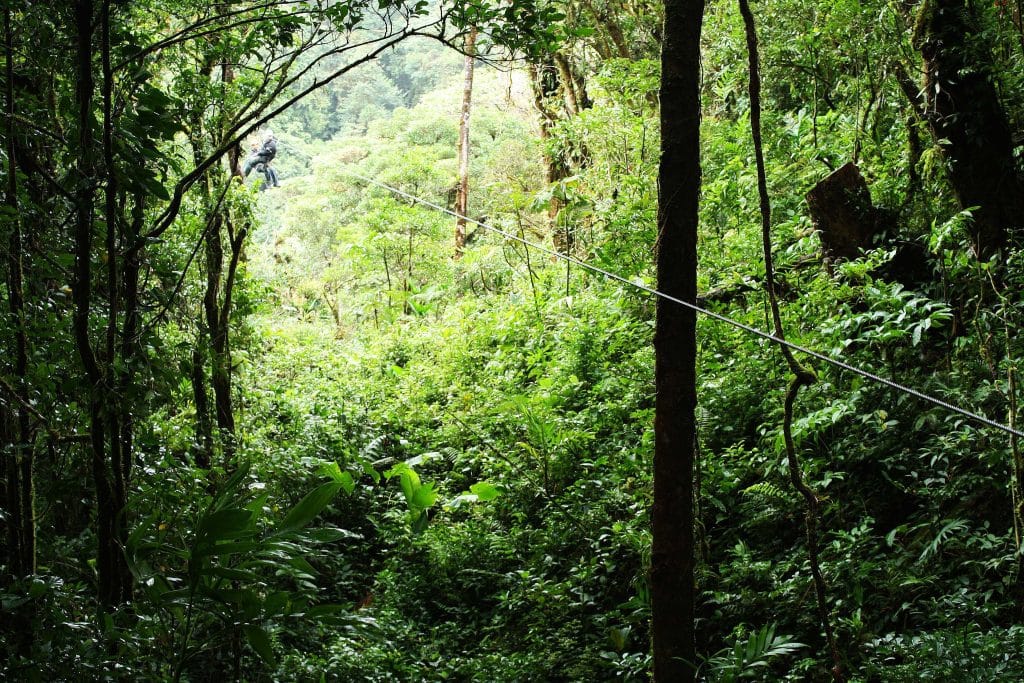
Where to find the cloud forest in Costa Rica
So we’ve established that any Costa Rican adventure holiday needs to include a trip to the cloud forest (particularly when you throw in the opportunity to zipline through the canopy and admire the views of the mountains and waterfalls from hanging bridges in the trees), but where exactly can you find cloud forest in Costa Rica, and where can you have the very best experience?
1. Cloud forest in Monteverde
The most famous and most frequently visited cloud forest, potentially in the world, is the Monteverde Cloud Forest Biological Reserve, in central Costa Rica. And there’s pretty good reason for this.
Spanning over 25,000 acres, this virtually pristine cloud forest is one of the very best examples of this habitat in the world, thanks to the fact that it has been designated as protected land since 1972.

Thanks to almost zero deforestation and government initiatives in promoting sustainable travel in Costa Rica, Monteverde is home to a vast array of wildlife, much of which is unique to this very particular climate.
On a visit to Monteverde you can spot two-toed sloths creeping through the canopy, hummingbirds that shimmer amongst the ferns, and if you are incredibly, incredibly lucky, even jaguars that roam the mist shrouded hills. Try a guided night time tour for a truly unique wildlife experience, and spend your downtime exploring the canopy on hanging bridges or by ziplining through the trees.
When resting, look out over the top of the canopy that disappears into the cloud from your balcony, and drink in the views as the sounds of howler monkeys come drifting up towards you.
Popular Wildlife Holidays in Costa Rica
2. Cloud forest in Braulio Carrillo National Park
Braulio Carrillo National Park is one of the largest in Costa Rica, and one of the most easily accessible in the country. Just a half hour drive from San Jose, it provides travellers with 117,000 acres of untouched wilderness.
The altitude of the national park ranges from around 40 to 2900 metres, meaning much of the park is a wonderful example of that highland rainforest, or cloud forest, that is so abundant in Costa Rica.
Despite being closer to the capital, Braulio Carrillo actually sees slightly less tourists than Monteverde, and is a wonderful park to truly lose yourself in to become immersed in the pristine nature it offers.

You’ll be able to spot much of the same wildlife here as in Monteverde, from the rarely-spotted ocelot to the ubiquitous white faced capuchin monkeys, and over 500 species of tropical birds.
3. Cloud forest in Los Quetzales National Park
Heading in the opposite direction from San Jose, Los Quetzales lies about 70km south east from the city in the Talamanca mountain range, providing that all-important altitude that is necessary for the best cloud forests in Costa Rica.
The park is named after its most famous resident, the resplendent quetzal, and there are few places on earth where you’ll have a better chance of seeing this beautiful bird of paradise. A visit during mating season (between February and July), results in a truly colourful display of competition from the males, as they bid to outshine each other for the attention of the females.
A visit to Los Quetzales also provides you with the opportunity to enjoy rafting and kayaking adventures, due to the seemingly countless rivers that run cascading down the mountains to the lowlands, and out to the Pacific.
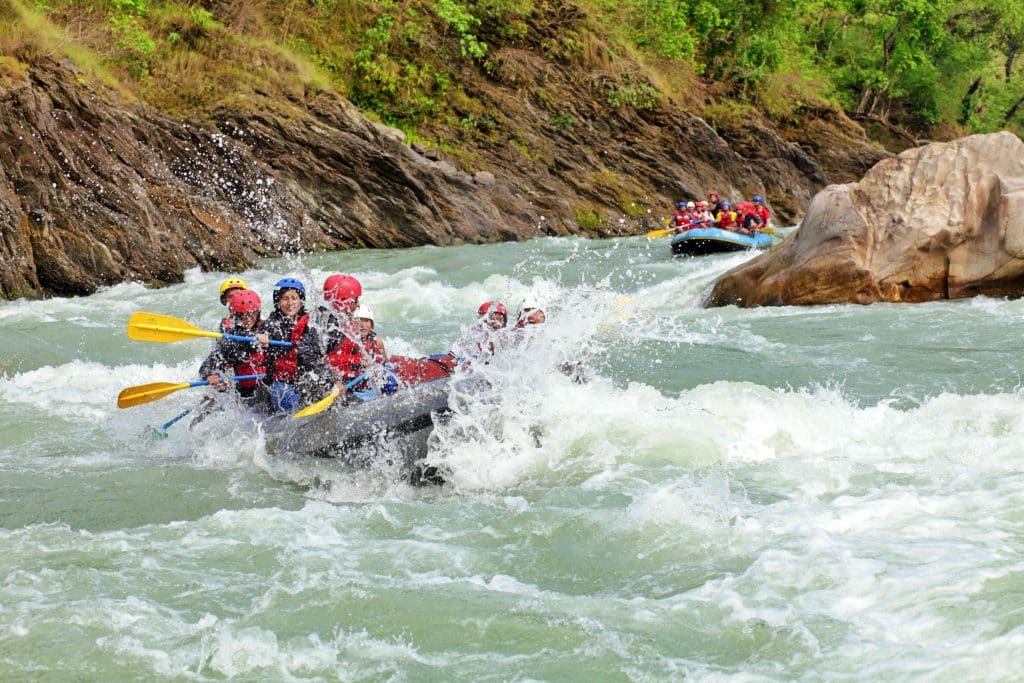
This is one of the newer national parks in Costa Rica, so you may find that facilities are more limited than in Monteverde or Braulio Carrillo, but many of our travellers find that this sense of isolation and wilderness makes it some of the best cloud forest to visit in the country.
Why we need to protect the cloud forest
Cloud forest makes up less than 1% of forest left in the world, and thanks to the specific conditions under which they form, is one of the ecosystems most likely to suffer from changes in climate due to global warming.
Already, much of the existing cloud forest in the world has been cleared to make space for plantations, grazing land and for logging, due to the ideal conditions for agriculture and the unique tree specimens found within them.
And as we’ve mentioned already, cloud forests are some of the most biodiverse areas on earth, harbouring up to 15% of the world’s biodiversity in birds, mammals and amphibians, with over half of those species being exclusive to a cloud forest environment.
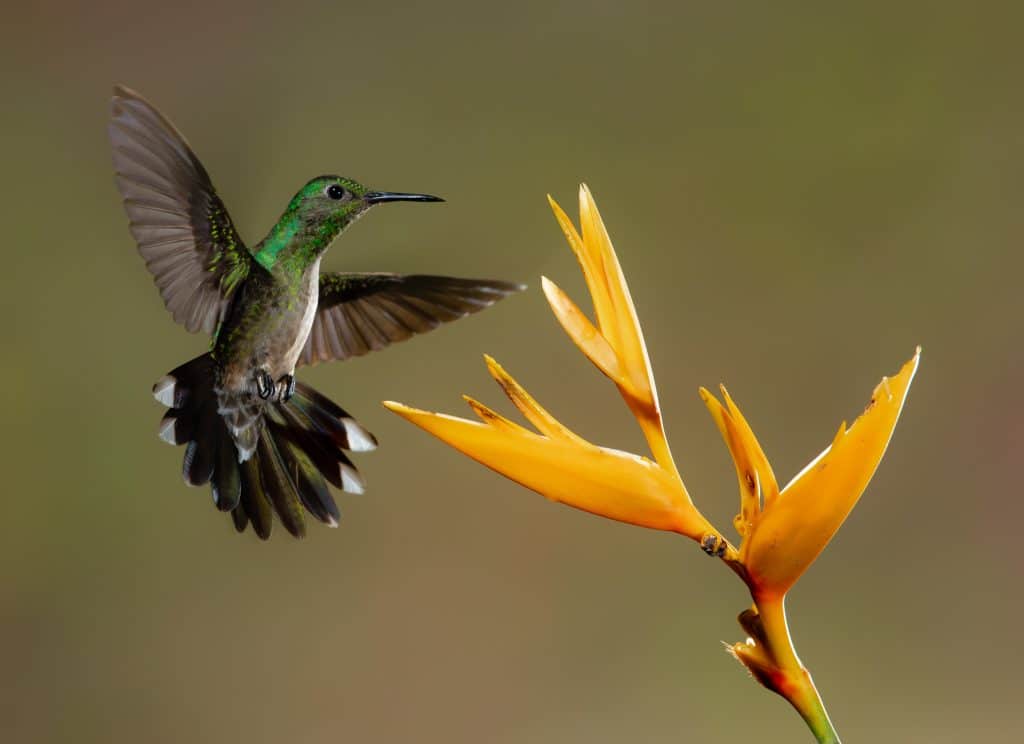
All this means that cloud forests need protection. Whilst Costa Rica, as a pioneer of sustainable travel, has placed official protection against logging and deforestation of its cloud forest sites, these policies are no protection against the ever-changing global climate.
As the world warms, cloud forests are being pushed ever-further up mountains in order to form in regions that are still cool enough, whilst lowland forest encroaches ever further up these slopes. If we don’t all change out travel habits for the better, these incredible, unique environments could be lost forever.
At Not In The Guidebooks, we work tirelessly to find you incredible travel experiences that get you off the beaten track, to places you wouldn’t visit if you were simply planning your own trip. We get you in touch with local hosts and guides, who get you under the skin of a country so that you experience authentic culture, and come away feeling as though you have had unique experiences you could never have had alone.
Whether it’s an adventure holiday in Costa Rica, a wildlife holiday in Costa Rica or even a yoga holiday in Costa Rica, with Not In The Guidebooks you can be sure you’ll have experienced the very best this incredible country has to offer.







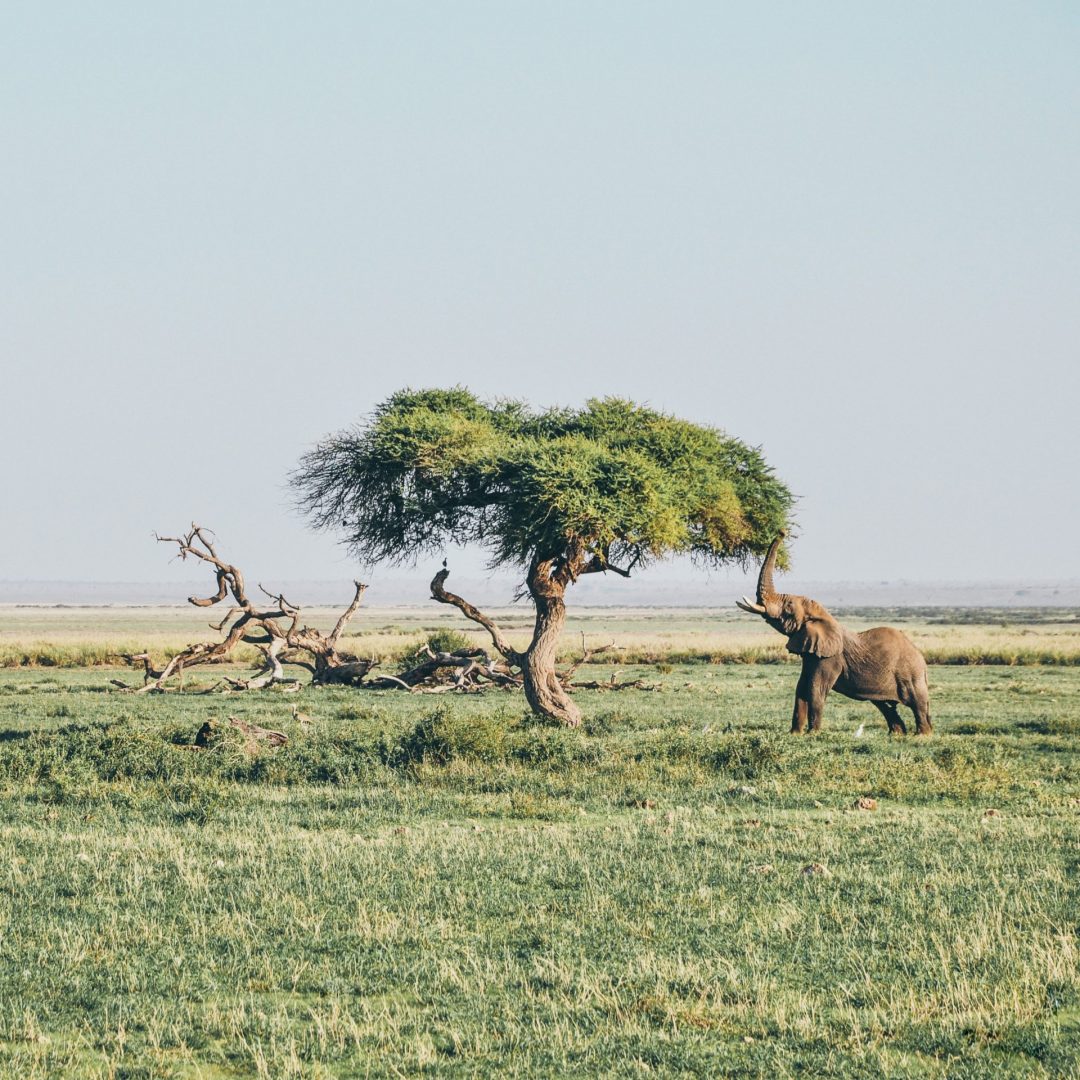








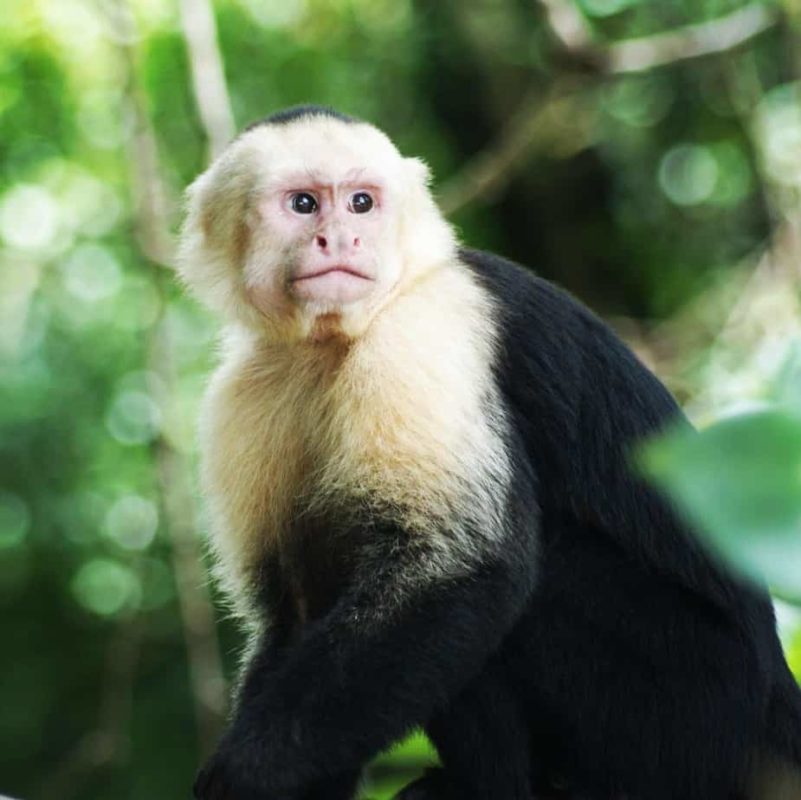
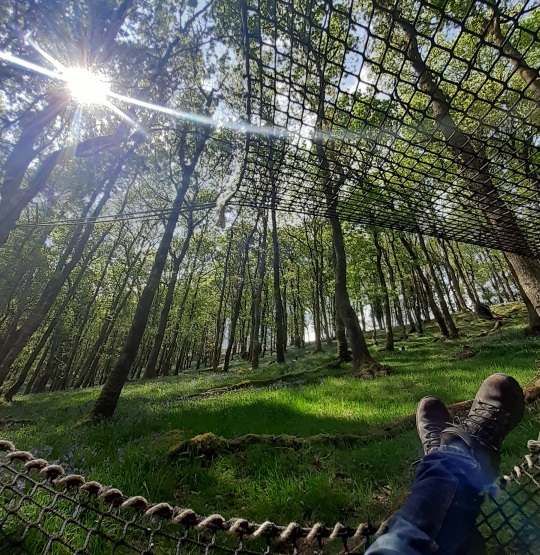

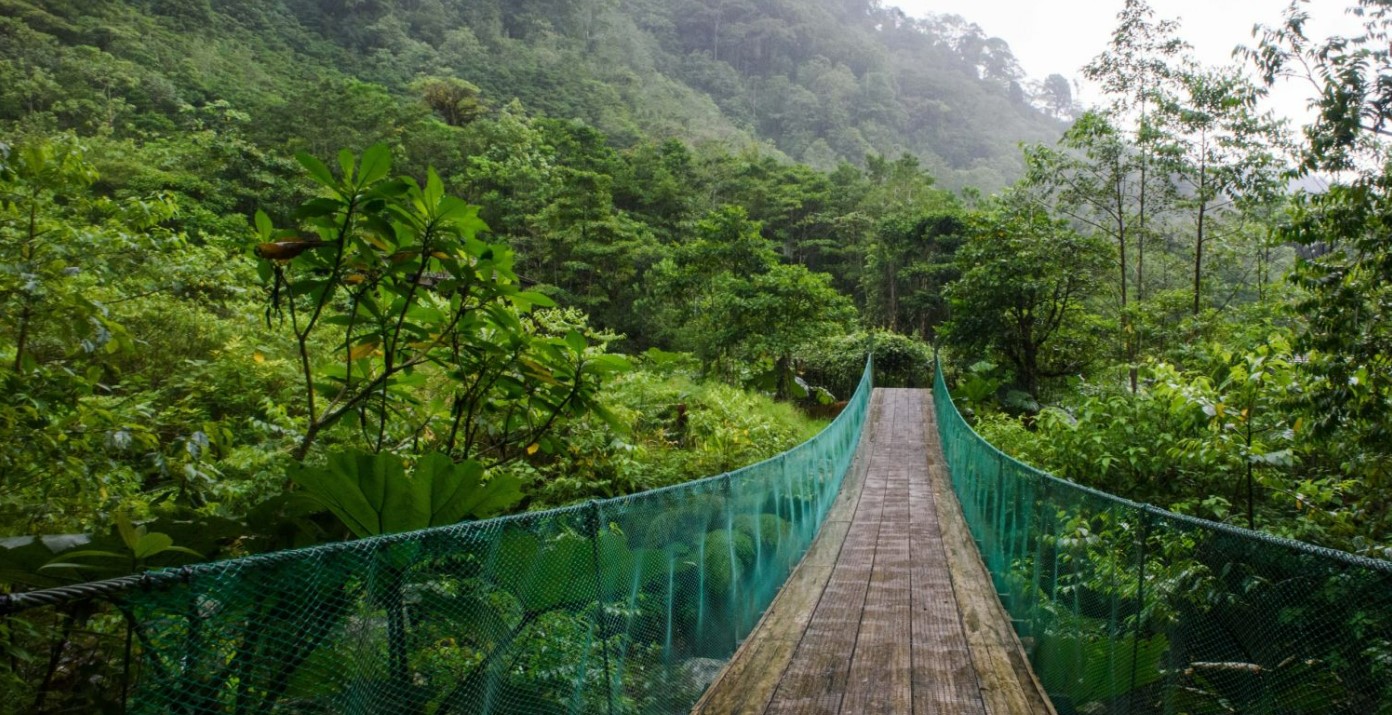

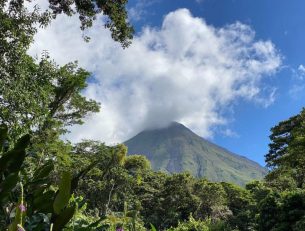
 Costa Rica
Costa Rica 